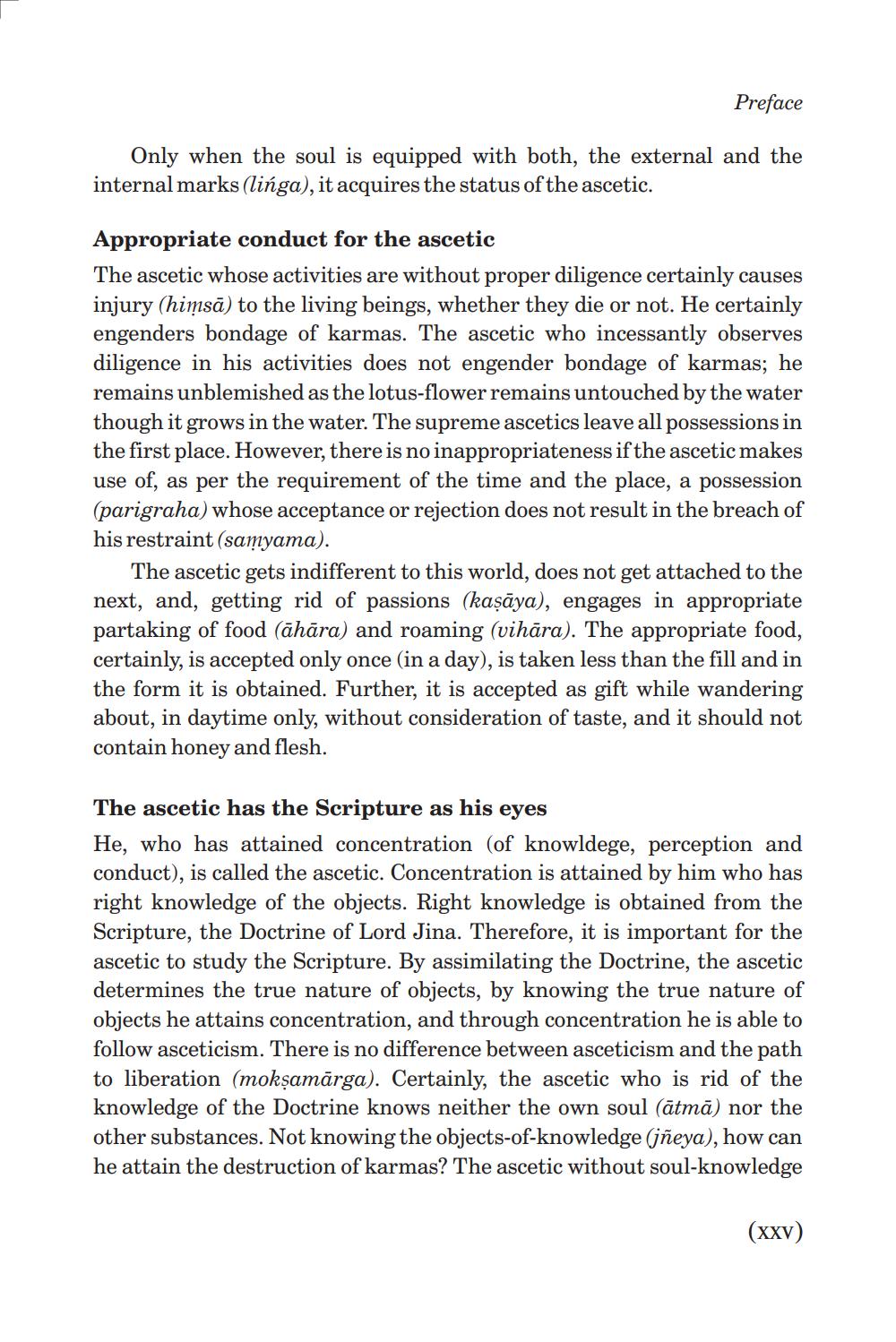________________
Preface
Only when the soul is equipped with both, the external and the internal marks (linga), it acquires the status of the ascetic.
Appropriate conduct for the ascetic
The ascetic whose activities are without proper diligence certainly causes injury (himsā) to the living beings, whether they die or not. He certainly engenders bondage of karmas. The ascetic who incessantly observes diligence in his activities does not engender bondage of karmas; he remains unblemished as the lotus-flower remains untouched by the water though it grows in the water. The supreme ascetics leave all possessions in the first place. However, there is no inappropriateness if the ascetic makes use of, as per the requirement of the time and the place, a possession (parigraha) whose acceptance or rejection does not result in the breach of his restraint (samyama).
The ascetic gets indifferent to this world, does not get attached to the next, and, getting rid of passions (kaṣāya), engages in appropriate partaking of food (āhāra) and roaming (vihāra). The appropriate food, certainly, is accepted only once (in a day), is taken less than the fill and in the form it is obtained. Further, it is accepted as gift while wandering about, in daytime only, without consideration of taste, and it should not contain honey and flesh.
The ascetic has the Scripture as his eyes
He, who has attained concentration (of knowldege, perception and conduct), is called the ascetic. Concentration is attained by him who has right knowledge of the objects. Right knowledge is obtained from the Scripture, the Doctrine of Lord Jina. Therefore, it is important for the ascetic to study the Scripture. By assimilating the Doctrine, the ascetic determines the true nature of objects, by knowing the true nature of objects he attains concentration, and through concentration he is able to follow asceticism. There is no difference between asceticism and the path to liberation (mokṣamarga). Certainly, the ascetic who is rid of the knowledge of the Doctrine knows neither the own soul (ātmā) nor the other substances. Not knowing the objects-of-knowledge (jñeya), how can he attain the destruction of karmas? The ascetic without soul-knowledge
(xxv)




